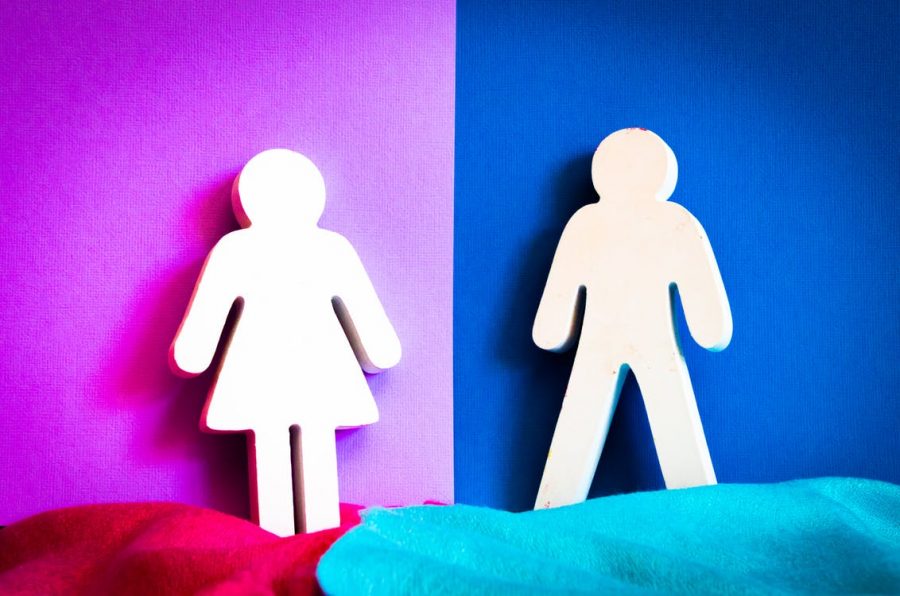Pronouns matter
The subject of gender is gaining momentum
Contrary to popular belief, sex and gender are two very different things. While there is a certain number of sexes, there are more genders to put a number on. Gender is what you identify as which can differ from what your sex is.
October 12, 2021
Singer Demi Lovato recently announced that they are nonbinary and are changing their pronouns from she/her to they/them. A topic that’s been swarming conversations recently is pronouns. In a Twitter video, the singer said they are not male or female.
Nonbinary, sometimes called genderqueer, is an umbrella term for genders that are outside the gender binary. Gender binary is the classification of gender into two opposite forms of masuline and feminine.With social media shining light on the subject, the topic has had many differentiating responses. The announcement served as an introduction to the controversial subject.
The Webster Dictionary defines a pronoun as a word such as I, he, she, you, it, we, or they that is used instead of a noun or noun phrase. In the English language, everyone has pronouns, It is not culturally accepted when people say they don’t have pronouns. There are countless labels someone can use for their gender. Some of the most commonly used are “cisgender” which refers to a person who identifies with the gender they were assigned at birth and “transgender” where someone doesn’t identify as what they were assigned. There are so many gender terms, many of which overlap. Some also have definitions that shift over time or differ from what source they are from.
Contrary to popular belief, sex and gender are two very different things. While there are a certain number of sexes, there are more genders to put a number on. Gender is what you identify as which can differ from what your sex is. Medicalnewstoday.com refers to “sex” as the physical differences between people who are male, female or intersex. Typically a person has their sex assigned at birth based on physiological characteristics, including their genitalia and chromosome composition. The assigned sex is called a person’s “nata sex.” So in other words, how somebody identifies has nothing to do with their genitalia. Because these are different things it’s important to respect how people classify themselves.The way someone’s appearance looks isn’t always how they identify.
There are more labels for genders to count, but it’s important to respect what people identify as. You can’t always tell someone’s gender by looking at them. Correctly using someone’s pronouns is a basic way of showing respect for them and their gender identity. When someone is referred to with the wrong pronoun it can make them feel disrespected, invalidated, uncomfortable or dysphoric. If you are unsure of someone’s gender identity you can always ask them in order to avoid misgendering them.
One main reason respecting someone’s pronouns is important is because other than our name, it’s one of the main ways people identify and refer to you. The way we call people by the names they give us is similar to how pronouns work. People tell you their pronouns and you should just use them. If you want to show someone decency and respect, you refer to them as the pronouns they identify with.
Asking about someone’s pronouns and referring to them as such is very easy and doesn’t take much effort. Even if you slip up and refer to them as the wrong pronoun, correct yourself if you catch it. Putting in the effort could mean all the world to someone. Many people, especially young adults, need time to experiment and figure themselves out. It’s extremely important they feel safe and capable of doing that. It’s socially acceptable for people to change their appearance in order to find their identity, and pronouns shouldn’t be any different.
It is a basic human right to not have to worry about what pronouns someone is going to use for you based on how they perceive your gender. If you have this privilege and fail to respect someone else’s gender identity, it is not only disrespectful and hurtful but also oppressive. In this day and age, it’s crucial to educate yourself on topics even if they don’t directly affect you. Accepting people for who they are even if they are different from you should be a given. It’s also important to be an ally for genderqueer people. Having alliances with different groups of people can provide the power for needed change. Because people from targeted or oppressed groups are bombarded by society with unfair treatment, violece or other forms of discrimination. People who are targeted need support from those people who aren’t being targeted in the same ways. It’s crucial we support and stand up for LGBTQ+ people.
When it boils down to it, gender is a social construct used to classify a person as man, woman or some other identity. It’s time to start respecting people and not judging them based on society’s standards.







